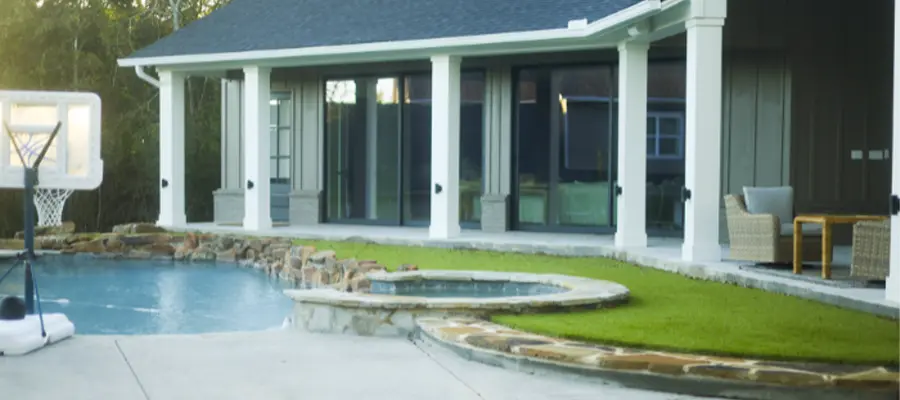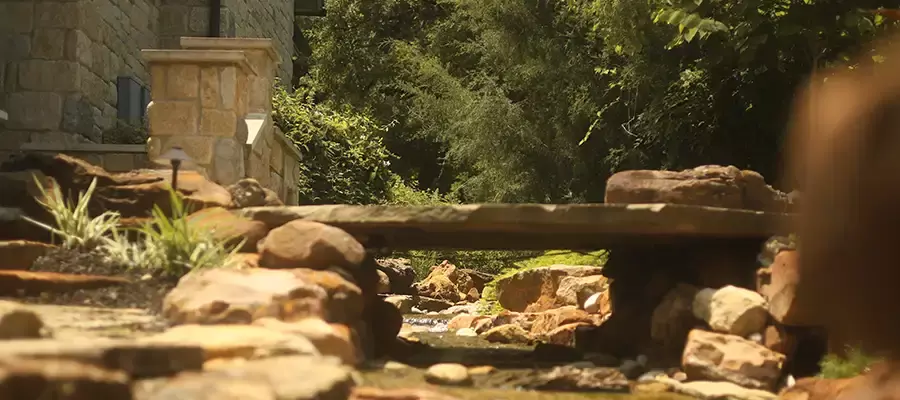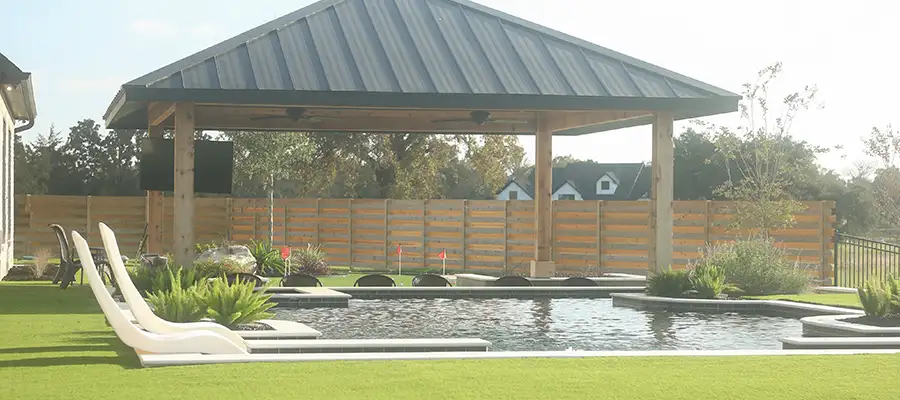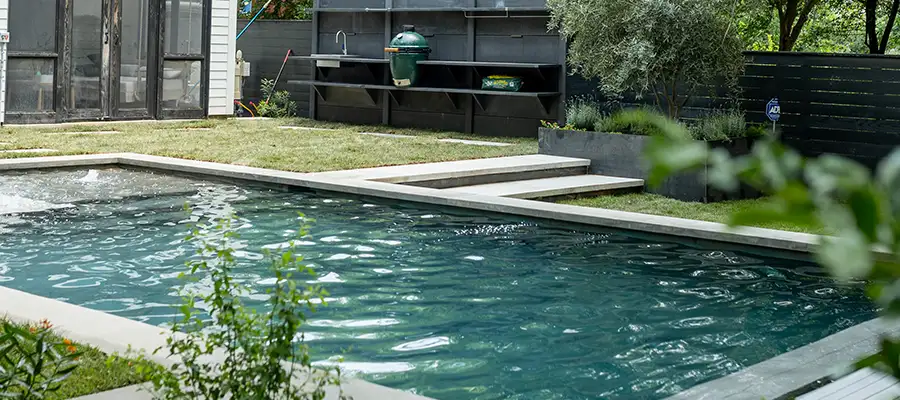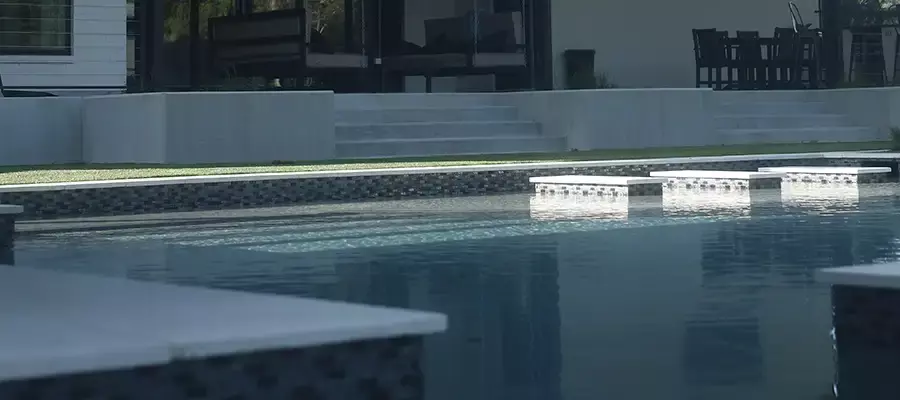
The hot days of summer are better when you can dive into a refreshing pool of water in your own backyard. Pool maintenance is the best way to ensure your family’s fun lasts for years to come. Below are our top tips to keep your pool in good condition.
Pool Maintenance “Do’s”
Remove Debris
Remove debris from your pool using a leaf skimmer. Remove fallen leaves from the surface of the pool water, clean the strainer baskets, and wipe every surface from the stairs to the corners. If you allow leaves to collect on the surface of your pool they will eventually gather on the floor, turning the water murky as they decompose and creating the ideal environment for mold and algae to grow. The strainer baskets work best when they are cleaned regularly to prevent clogging.
Monitor Water Level
It’s important to consistently monitor the level of water in your backyard pool during the months it’s in use. You may need to add additional water during a particularly hot and dry summer but be careful not to overfill it. Regular use and evaporation can lower water levels, while heavy rain will fill your pool quickly.
Test Chemicals
The pH balance of the water in your pool should be tested weekly using a test strip. This ensures that the water is safe to swim in. The pH level should be kept around a 7.2 to 7.8 ratio of acid to base and the chlorine levels should be around 1 to 3 PPM (Parts Per Million).
Vacuum
If any debris has fallen to the floor of your pool, it’s imperative that you vacuum to remove it. Once the debris has been removed, you can scrub the surface of your pool to prevent the growth of algae.
Pool Maintenance “Don’ts”
Shocking Your Pool
Don’t shock your pool during the heat of the day. Instead, wait until the evening or nighttime when the harsh sun won’t interfere with the chemicals.
Running a Pump
Your pool pump is an important part of your pool system, pulling water from the pool and circulating it to other equipment to be filtered and returned. However, your pump does not need to run around the clock. Most pumps are designed to run about 8 hours a day, but it doesn’t need to run 8 hours consecutively.
Emptying Your Pool
Don’t let your pool sit empty, even when it’s not in use. Always keep water in your pool, even during the cold winter months, to protect your pool liner.
Cleaning
Don’t use a harsh brush to clean your pool. Instead, use a soft brush once a week on the surface areas of your pool to prevent algae growth
Pool Construction by Grassroots
Are you ready to get the most out of your backyard this summer with a pool? The Grassroots team is here to bring your vision to life. Our team of professional pool construction specialists has years of experience in pool construction for residential properties. Contact us to learn more.
Share
It’s a hot, sunny day in Central Texas. You step out your back door into the relentless heat before diving into your outdoor oasis pool’s cool, refreshing water. After swimming a few laps, you retreat to the shade of your patio, listening to the soothing sound of pool fountains as you sip a cold drink.

